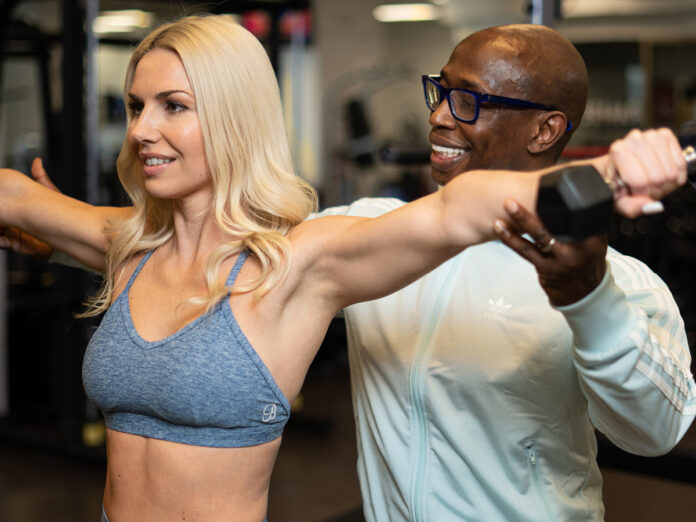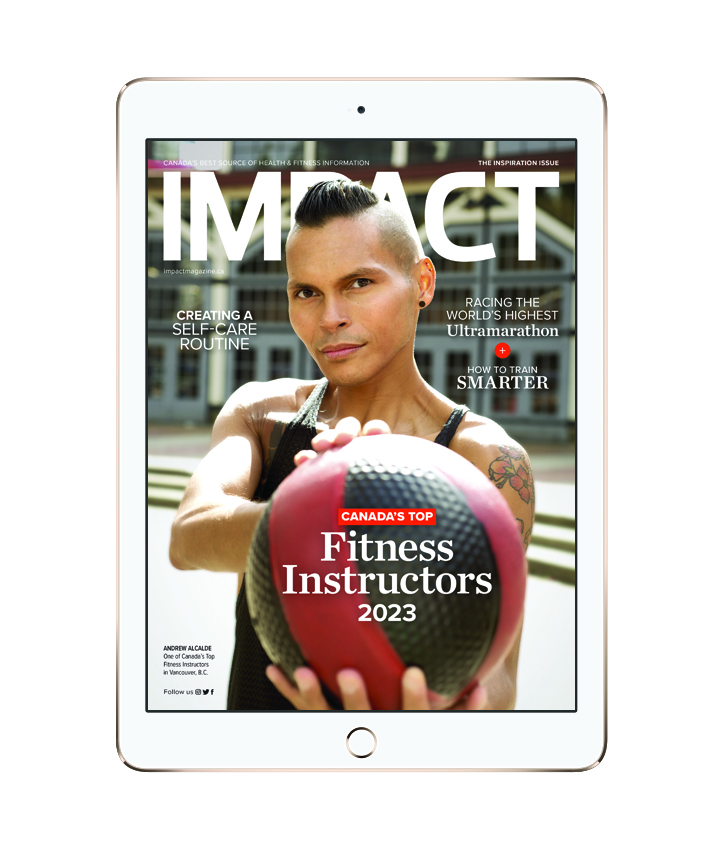
When we want to invest our money, we look to experts who understand the risks and opportunities, the potential windfalls and pitfalls, the ebbs and flows of the stock market, and most importantly the patience that is needed to see our investments grow.
The same is true of our health.
To improve our health, the smartest decision we can make is to seek the help of an expert. Whether you are a novice, coming back to fitness after some time away, or are training to shave two minutes off your marathon time, think about investing in a coach or a trainer this year.
Consider this an extravagant expense? Think again. Look no further than professional athletes—they don’t fly solo. Whether at the World Cup, the Olympics or Wimbledon, they always arrive with their coach. This is universal: we achieve our goals smarter and faster when we have a partner in motivation, accountability and skill. Trainers are filled with knowledge that can help you—whether it is designing your lactate threshold workouts and Zone 2 cardio or showing you how to safely weight train with chronic pain.
HERE’S WHAT TO LOOK FOR IN A GREAT TRAINER:
Compatibility
The trainer you hire is potentially going to be one of the most intimate relationships you have in your life. Make sure the connection is there and that your trainer is going to listen to you and create a SMART plan – Specific, Measurable, Achievable, Realistic and Timed. For example, you want to cycle in Italy in July, but you haven’t done a lot of cycling before. That’s a specific goal and is both realistic and achievable, even if you aren’t an expert rider. A good trainer will not only have you on an indoor bike but will design a program to strengthen your climbing muscles (quads, hamstrings and glutes) as well as your core.
Education
A great trainer must have certifications and qualifications. If you are someone with a health condition or injury, look for an expert in medical fitness or kinesiology background. At my company, LIVE WELL, our Clinical Exercise Physiologists know how to create safe programs for people with chronic health conditions, whether it is diabetes, heart disease or arthritis. You might not find the trainer you need on Yelp or in a Google search, but definitely look for reviews. A rule of thumb is that a good trainer will have extensive education and recent additional certifications in the fitness industry. Great trainers are always learning and increasing their knowledge, whether in nutrition, peak performance or working with special populations, like people with chronic health conditions.
Experience
Experience is fantastic, but do not use that as a benchmark. If you are a runner, you don’t necessarily need a trainer who runs. There are incredible kinesiology-educated personal trainers who understand how to program speed and hill work to get you to your marathon time! Do your research and most importantly, see if this is the right fit for you. If someone is new to the industry, do not dismiss them! They could be fresh out of school and incredibly knowledgeable and passionate.
Programming
The crazy things you see on social media are not building blocks of fitness. Great trainers will know how to design a program that is easy to follow and execute, but also has progressions sensibly built in so that you can be both consistent and stay engaged. This means that you will likely be doing simple, safe and functional movement patterns with progressions over time. If you are relatively new to fitness or you are coming back from a period of time away as many Canadians will be this January, a great trainer will know to take it slowly with you. Although we can expect a certain amount of Delayed Onset Muscle Soreness (DOMS) when starting out again, a session with a trainer should never hurt.
Creativity
A great trainer is going to help you create a program that makes you excited about your fitness and your health, and for that I recommend you look for a trainer who is creative. Fitness should be fun, and if your goal is to do pull-ups, a great trainer will have you training in multiple planes of motion, and cross-training and working on your back in interesting ways—they won’t just leave you hanging from the bar.
Cost Analysis
It goes without saying that cost is a factor many people will think about when hiring a trainer. Is the person you are hiring worth the money? The answer, from within the fitness industry, is an unequivocal yes. If you are looking to climb Everest one day and need not only the strength and power but also a great cardiovascular program, a great trainer will get you there. If you just had a baby and want to lose the baby weight and get your core strong again, a great postpartum trainer will get you there.
Research has shown that one-on-one personal training is an effective method to increase physical activity and change our attitudes about fitness—whether you are new or need to switch up your routine.
A great trainer is worth the investment in you.
QUESTIONS A GOOD TRAINER WILL ASK YOU
When you first meet the trainer, make sure they ask the right questions; it shouldn’t simply be your PAR-Q. What are you hoping to achieve? What are your challenges? What is the best time of day for you to work out? How much time can you devote to your health? How do you plan on fitting in exercise with work and family? What are your short and long-term objectives?
You should also have a list of questions ready. What’s their experience level? What certifications do they hold? Have they worked with your demographic? And life happens: what is their cancellation policy?
Photography by Jordan Herdman

Read This Story in Our 2023 Inspiration Issue
Read about our 2023 Canada’s Top Fitness Instructors – our top 30 from across Canada! How to Train Smarter in 2023, Yoga Nidra for What Ails You, Racing the World’s Highest Ultramarathon, our favourite plant-based recipes and more!















